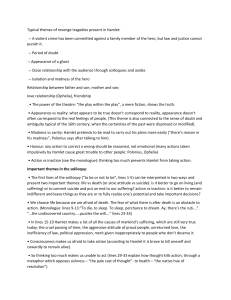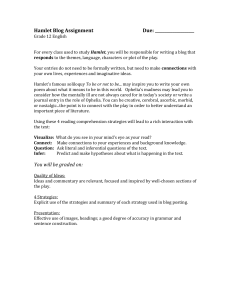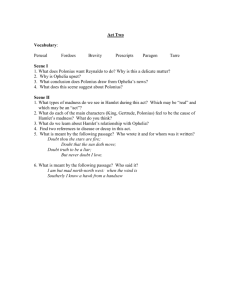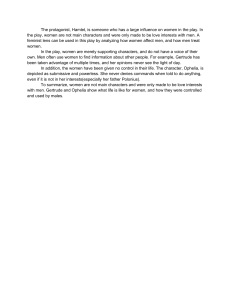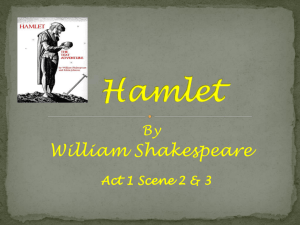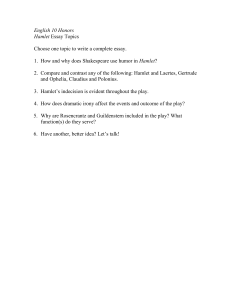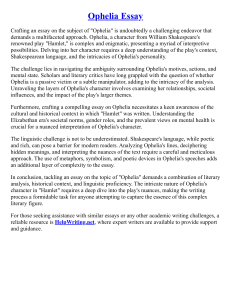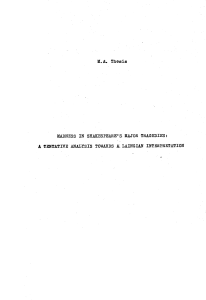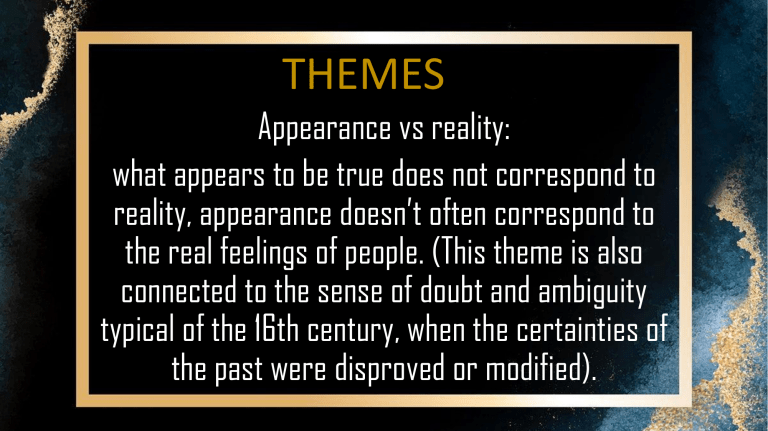
THEMES Appearance vs reality: what appears to be true does not correspond to reality, appearance doesn’t often correspond to the real feelings of people. (This theme is also connected to the sense of doubt and ambiguity typical of the 16th century, when the certainties of the past were disproved or modified). • Relationship between father and son; Mother and son; love relationship (Ophelia), friendship. • The power of the theatre: “the play within the play”, a mere fiction, shows the truth. • Madness vs sanity: Hamlet pretends to be mad to carry out his plans more easily (“there’s reason in his madness”, Polonius says after talking to him). • Honour: any action to correct a wrong should be reasoned, not emotional (many actions taken impulsively by Hamlet cause great trouble to other people: Polonius, Ophelia) • Action vs inaction: thinking too much prevents Hamlet from taking action. SOLILOQUY • The soliloquy (“to be or not to be”), can be interpreted in two ways and present two important themes: life vs death : is it better to go on living (and suffering) or to commit suicide and put an end to our suffering? action vs inaction : is it better to remain indifferent and leave things as they are or to fully realize one’s potential and take important decisions?
